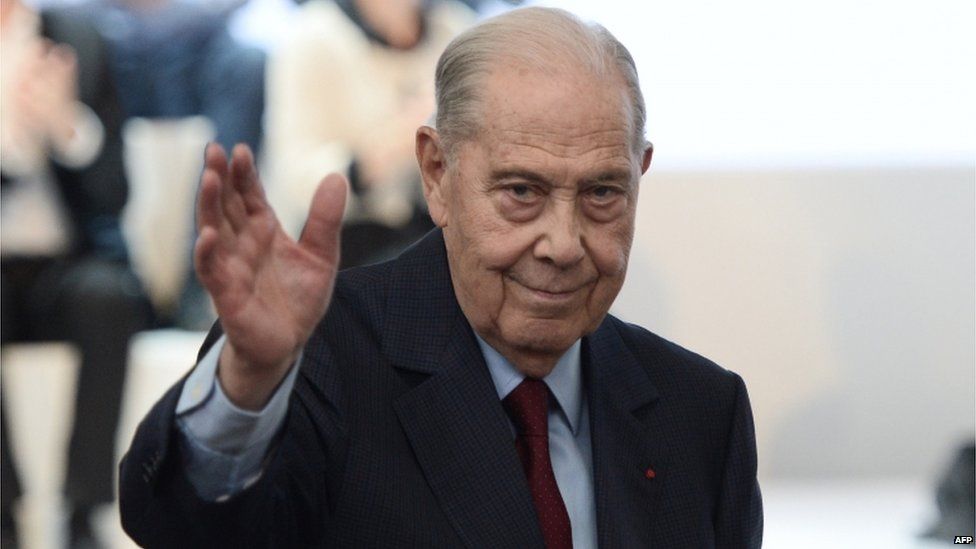French hardline Gaullist Charles Pasqua dies aged 88
- Published

One of France's best-known hardline conservatives, ex-interior minister Charles Pasqua, has died of a heart attack in hospital aged 88.
A veteran member of France's wartime resistance, he helped found the Gaullist RPR party and became a close ally of President Jacques Chirac.
His latter years were clouded by allegations of corruption which led to suspended prison sentences.
He was best known for his firm views on immigration and terrorism.
"You have to terrorise terrorists," he said in 1986 in response to a wave of Islamist attacks in Paris. He was interior minister twice, from 1986-88 and then again from 1993-95. Another of his widely quoted remarks was "democracy stops where the state's interest starts".
Mr Pasqua showed some sympathy towards policies of the far-right National Front in the late 1980s and went on to push through laws in 1993 aimed at cracking down on "uncontrolled immigration" and the right of asylum, measures later criticised by the UN.
Pasqua also took a hard line towards the European Union, urging French voters to reject the Maastricht Treaty in 1992 and to vote No in the 2005 referendum on the European Constitution.
He backed the legacy of post-war President Charles de Gaulle who advocated a centralised economy, powerful presidency and independent foreign policy.
He helped found fellow Gaullist Jacques Chirac's RPR party and last month was involved in the launch of Nicolas Sarkozy's Republicans party, a rebranding of the centre-right UMP.
For years he had fought allegations of corruption and was cited in a number of court cases, which earned him the nickname "godfather of Hauts-de-Seine", an area on the western fringes of Paris.
He was eventually cleared of involvement in corruption over an oil-for-food programme for Iraq as well as arms sales to Angola in contravention of a UN arms embargo.
When he died he was still challenging a two-year suspended sentence for misappropriation of public funds.
- Published29 April 2011
- Published30 April 2010
- Published12 May 2005